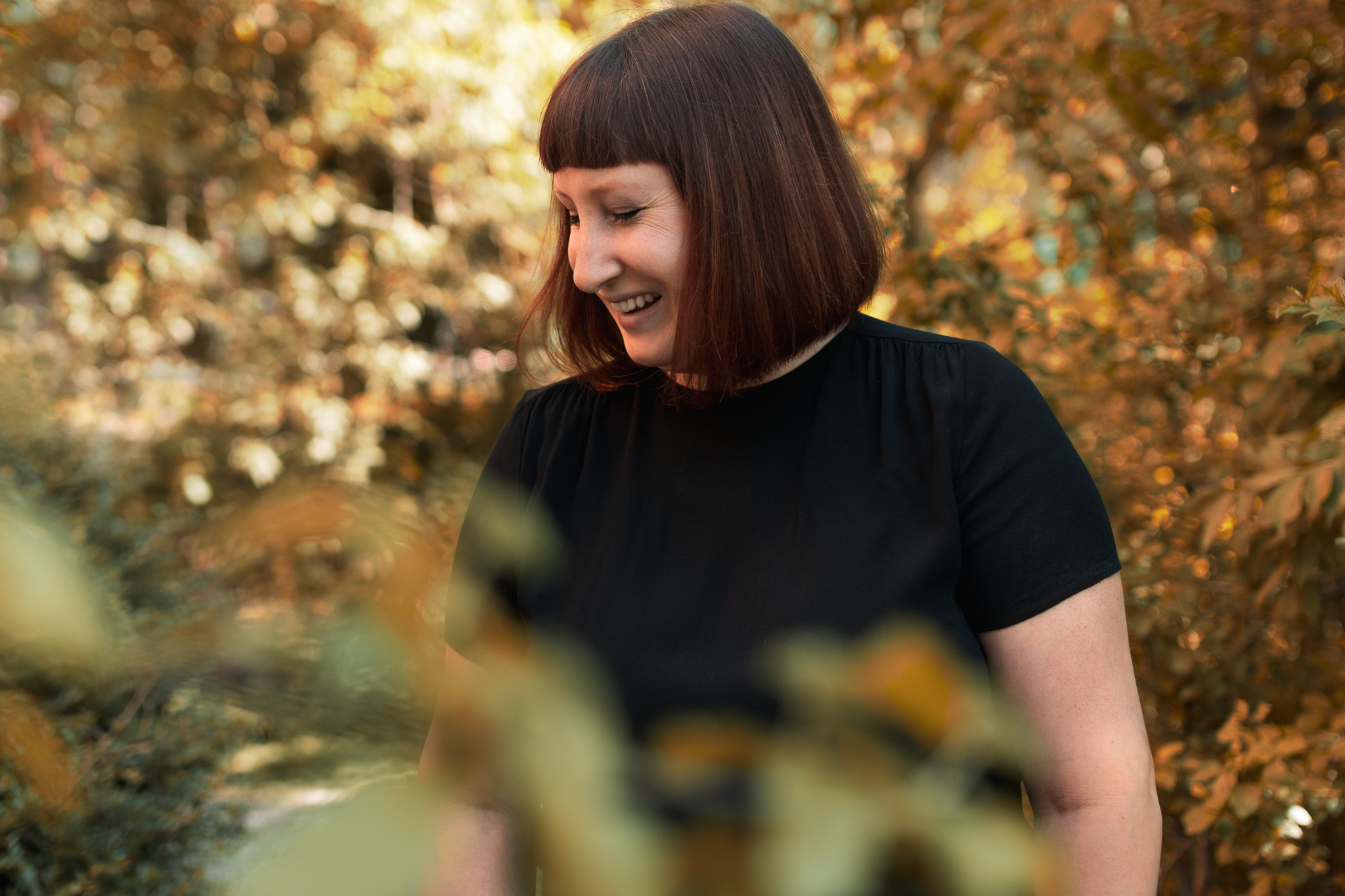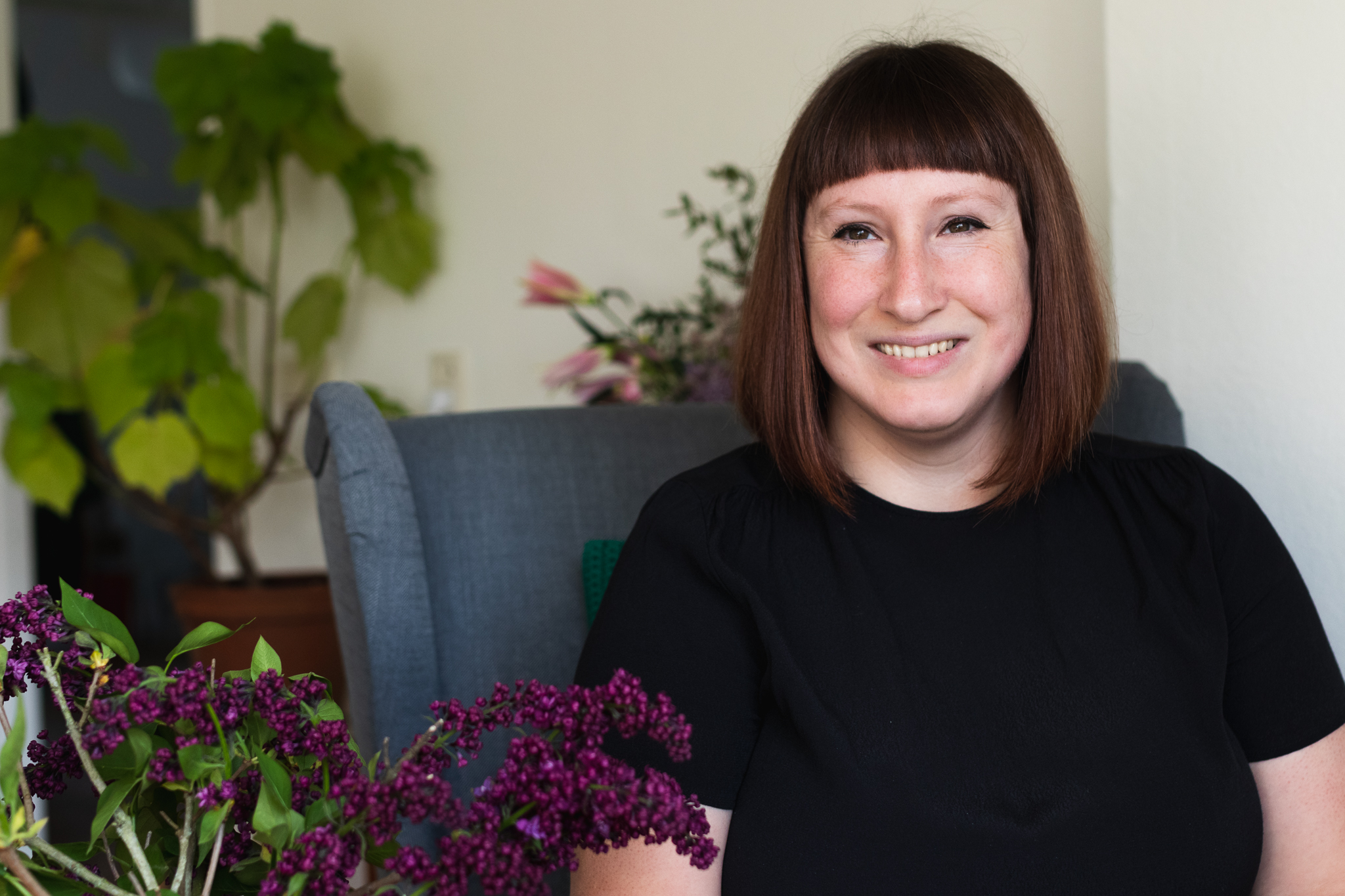Working from Home with Barbara Strating
Since 16 March, the team of Studium Generale have been working from home. Normally speaking, you often see us during our lectures and other activities, but now we‘ve been working at home for almost fifteen weeks. As we can’t see each other ‘in the flesh’ at the moment, we’re sharing written and visual portraits of our programme makers with you. This week: an interview with Barbara Strating, programme maker with Studium Generale.
What’s your background?
In Nijmegen, I studied philosophy and cultural studies. During my studies, I soon found I wasn’t cut out for the typical philosopher jobs. I didn’t want to become a teacher or to specialise and get a PhD. I’m a generalist. I like broadening my horizons. And I really enjoy making programmes. I started doing that in my secondary-school days in Heerlen already. Organising public events has been a recurring theme throughout my life.
You’ve been a programme maker with Studium Generale for two years now. What are your highlights so far?
There have been a couple of really great lectures. Wieteke van Zeil, for example, was really nice, with a packed hall, and the evening about China’s social credit system. Last year, I curated and moderated a talk show about body positivity. That was a wonderful evening. I’m also proud of the collaboration with Lumière Cinema, which bridges the gap between film and another discipline like science, for example. That’s something I’d done before a few times in Nijmegen, for instance in our own living room film festival, Kloosterkino, or in my work as a programmer for a film festival.
So you’ve really got a thing about film?
No. (She laughs) Yes and no.
Why do you enjoy working with film then?
Two things are important to me. Firstly, I’ve always been very interested in meaning. How is meaning allocated to something and by whom? What are the meaningful moments in someone’s life, but also what are meaningful objects and what are the conveyors of meaning? And how can you ensure that people understand one another? We use various media for that. I don’t mind whether it’s film, a lecture, an artwork or a good conversation. What matters to me is that there’s a great plurality of stories and meanings alive in society. And that we can share them with each other.
And then there’s facilitating discourse in a democracy. We have to talk to one another. You can do that, for example, by providing a platform for philosophers and by stimulating discussion between scientists and the public. That’s what we do in the Film & Talk programmes. For me, coming together and exchanging ideas are core values in why a democratic society survives. So I find the present crisis, where we can’t get together any more, quite problematic.
I sincerely believe that a good documentary can have more impact than a lecture or a discussion on social media. For instance with regard to the situation about racism in the US.
Is that because you make it visual or tangible?
If you learn how to look at film – and the same applies to learning to understand art – you learn to analyse things from different perspectives and angles. You learn to look at the world with empathy, from another perspective.
Is “learning to look at film” something that should be offered early on?
People develop not just as intellectual beings. We also have to learn to make things and to enjoy things that are beautiful. Simply to discover what you think is beautiful and what you think is ugly. And to work with your hands.
At Studium Generale, we give a course in film analysis and a course in art history every year. We also give lectures on similar subjects. Studium Generale is an extremely low-threshold way of gaining knowledge, but also of learning to reflect. That’s why I think it’s great that the major part of our programme is free, so that people can come along regardless of their income.

You said before that you found it difficult not being able to get together at the moment.
Hannah Arendt is a philosopher who has helped form the way that I reflect on society and people. Arendt makes several distinctions in the way we can think about democracy and society. One of the most important insights I have gained from her is that speaking – but also listening – and entering into discussion with one another are among the principal human conditions. For Arendt, talking is a condition of freedom, a free society and democracy. I’ve always found that inspiring, as I’m extremely fascinated by what happens if you enter into discussion with one another in front of an audience and take different viewpoints. Of course, Studium Generale isn’t a venue for debate and contemporary politics, but we are definitely an important facilitator of the exchange of ideas.
The point is, though, that these discussions work best if you can get together. And now you have to have this sort of discussion on Zoom. People don’t always have the relevant digital skills and it’s just much more tiring.
What makes it tiring?
You’re staring at a screen all the time. And the physical absence of other people makes it more anonymous. It’s like it’s easier to exchange abuse on social media. The other people aren’t physically present. If you say something mean to someone, you get a reaction. Usually, reactions are often non-verbal. You see someone freeze, start or laugh. It’s precisely that form of communication that’s really important in sensing the atmosphere and finding out whether you agree with one another.
Suppose that in the long term fewer gatherings can take place physically, what might the alternative be?
I don’t expect we’ll have a world where everyone just sits in their own room looking at a device all day. I don’t think that’s a realistic scenario. You see already that people are coming together again. Take the demonstration on Dam Square on 1 June, for instance, and the demonstrations in other cities. People are already trying to get together again, despite the measures. People might start wearing face masks more often in public, but getting together for a lecture or debate is an essential part of who we are.
I hear many people saying that they feel like they’re in an online bubble. On Facebook, for example, you can choose to simply ‘switch off’ people who have a different opinion to you.
Yes, that’s a shame. Although it’s good too. But then you return to the discussion of whether Facebook is a public or private space. Within the four walls of your own living room, you can be with people with whom you feel comfortable. You’re entitled to surround yourself with people you agree with for the most part. But people are also public creatures. We walk along the street and we have a parliament. Many of the morals we live by in society are not an individual choice. They’re part of a group process that you go through as a society.
The thing is to realise that you’re in an online bubble. That you mustn’t let the algorithms determine what you think. And that you should continually and consciously seek out people who think differently. Something I do find difficult is all the conspiracy theories that are surfacing now.
What do you find difficult about that?
What bothers me about this development is that normally in a discussion you’re talking about the same object or the same happening. Something that at the most you’ve experienced differently or you interpret differently. Now that conspiracy thinking is becoming mainstream, and people are running down the “mainstream media”, you see that we’re talking about different worlds. The world where corona is caused by 5G is a world I don’t inhabit and don’t understand at all. If you talk about this with conspiracy thinkers, you see that the difference of opinion doesn’t even really lie in the question of whether or not it’s true. You’re pushed more into a defensive stance, as you don’t see reality the way they do. That’s why, in this regard, fact checks or critical journalism have so little point. Moreover, some conspiracy theories are a deliberate political strategy to overturn a democracy.
Regarding some of the theories doing the rounds, I still don’t know whether I think that they’re a different body of ideas or that they’re just dangerous bullshit. Do you see? It’s not based on facts at all. People just say, “No, your facts aren’t true. They don’t exist”. You need a common basis in order to be able to talk to one another. I’m still not at all sure how we should deal with it, although I do think we should deal with it somehow. And that Studium Generale can play a role in that. We’re also a part of the university and of ‘the sciences’. And science is what’s now coming under pressure.
Shouldn’t we try to get those people to follow the science?
There’s something else going on too. This whole corona crisis, but also the economic crisis and the situation of the world in general, is generating a lot of fear and uncertainty in people. That story from Arendt is, of course, a very rational story. I could say, ‘if you talk to each other enough, in a non-violent way, then you have a democratic society and mankind can flourish’. However, it’s not the case that we only learn, and only think, as rational beings.
Over the past fifteen years, political campaigns have been conducted on the basis of emotions. Often, they’re not even big emotions. It’s all about the way of arguing and framing. Those conspiracy videos also play on a vague feeling you have. You look for a theory that gives a conclusive answer to uncertainties you’re struggling with. Living with that uncertainty – that a great many things are not clear at all – is really quite difficult for people. It’s something that shouldn’t be underestimated.
At the start of our conversation, I talked about documentaries. And why I think that documentaries can be as good a source of knowledge as a lecture. It works the other way around too: a rhetorically gifted speaker can incite someone to mass murder. So can a well-made film. Neither are the media non-violent things that always have our best interests at heart, and that’s also something people should be aware of. But that’s what makes it interesting too.

Would you like to add anything else?
Actually, I’d expected a totally different interview. Much more about my garden and how I’m spending my time now, alone in my own flat. And how wonderful it’s been in recent months to wander occasionally through Maastricht without being mown down by hordes of tourists.
I think your ideas actually say a lot about how you’re spending your time and what you’re doing for Studium Generale.
And I think it’s good you ask that question. It’s maybe passed over too often. I always do my best to make as diverse and pluralistic a programme as possible, as I don’t think you should necessarily represent one point of view as a university. Science is furthered through different ideas and paradigms. And programme makers, too, don’t have a neutral position. You need to be aware of that.
Text and visual material by Amber-Helena Reisig